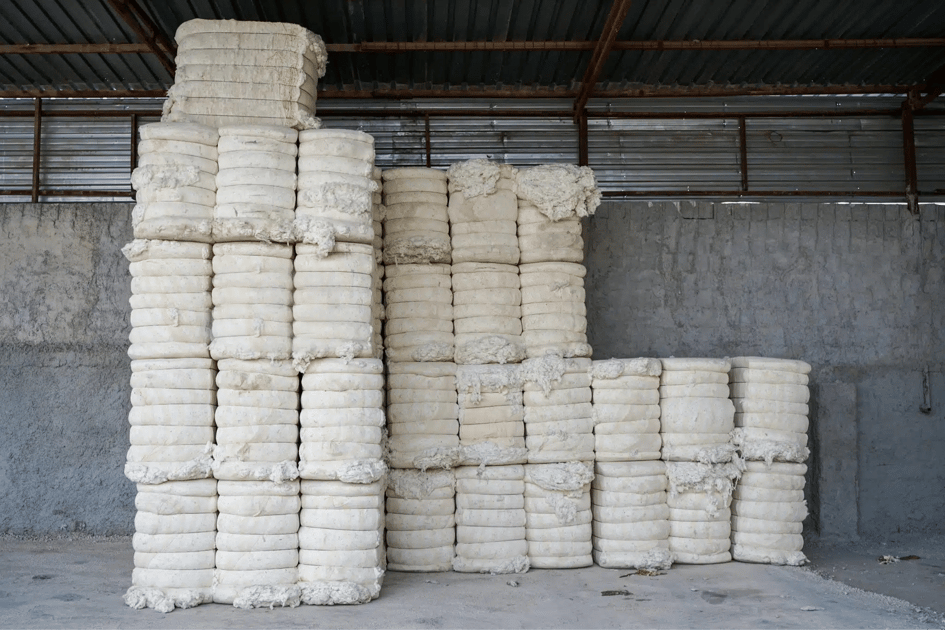Cotton bales. Credits: Better Cotton
The non-profit organisation Better Cotton has launched a new traceability solution for the fashion and textile industry called Traceable Better Cotton, which has been developed over the course of three years. It will provide visibility of the journey of cotton through the supply chain by logging stakeholder input on the Better Cotton platform.
According to the organisation, it has worked closely with a network of member retailers and brands like the H&M Group, Marks & Spencer, Walmart, Target, Bestseller, Gap Inc and C&A to ensure that fashion companies can accurately trace and disclose the origin of raw materials and comply with emerging regulations.
“At Marks & Spencer, 100 percent of the cotton we source for our clothing comes from more responsible sources, however, across the industry the global supply chain remains particularly complex. Since 2021, we have been proud partners working with Better Cotton to improve the traceability of cotton and we’re delighted to be able to be part of this first-of-its kind solution which will enable us to track our cotton at scale along the supply chain,” commented Katharine Beacham, head of materials and sustainability at Marks & Spencer.
Through the Better Cotton platform, operated by software company ChainPoint, suppliers can log transactional information from the cotton ginning stage to the retailer or brand, thus keeping track of where Better Cotton originated from and how much of it is within a product.
A “seismic shift” for supply chains
“Traceability at scale for cotton will drive a seismic shift within our industry’s supply chains. Better Cotton's traceability solution is poised to help the industry deliver that shift. Never before has transparency been as imperative as it is now to our retail and brand members. We’re grateful to every organisation that has helped shape the development of the Better Cotton Platform and stand committed to its constant improvement,” said Better Cotton CEO Alan McClay in a press release.
Not to mention that companies are now increasingly expected to verify the origin of the raw materials within their products to increase transparency and to address the potential adverse effects of their activities on human rights and the environment.
“Traceable Better Cotton will give member retailers and brands confidence that they are sourcing product from a specific country, and establish greater supply chain visibility, enabling them to incorporate insights into their own supply chain due diligence activities,” so the press release.
In the coming years, it is planned that Traceable Better Cotton would serve as the foundation for an Impact Marketplace that would compensate farmers for field-level progress. It is also expected to enable country-level life cycle assessments (LCAs) to calculate the environmental impact of Better Cotton in relation to conventional cotton and to provide credible consumer and business-facing claims.
http://dlvr.it/SyMlJY

No comments:
Post a Comment